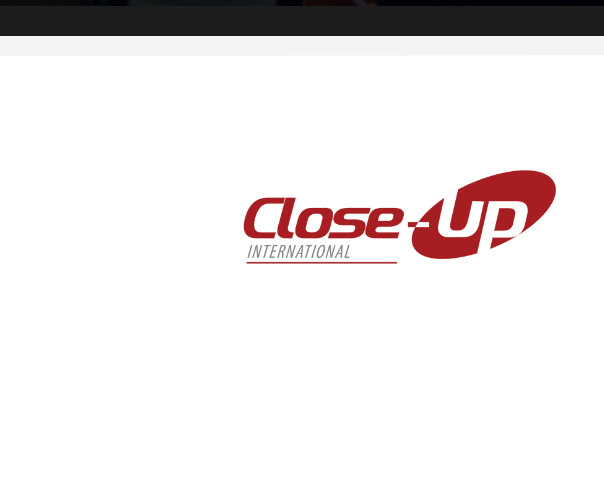Notifications

 By Close-Up CRM
By Close-Up CRM
Invalid date
12 minutes, 4 seconds
642 views 0 comments 1 like 0 reviews

In today’s highly competitive pharmaceutical industry, companies are continuously seeking innovative ways to improve their sales growth and streamline operations. One of the most effective tools at their disposal is Customer Relationship Management (CRM) software. A Pharma CRM specifically designed for the pharmaceutical sector is an invaluable resource for optimizing sales efforts, enhancing customer engagement, and driving business growth.

1. Understanding Pharma CRM
A Pharma CRM is a software solution tailored specifically to the needs of the pharmaceutical industry. Unlike generic CRMs, which are often too broad in scope, Pharma CRM solutions are designed to meet the unique challenges that pharmaceutical companies face, such as regulatory compliance, managing physician relationships, and navigating complex sales processes. These tools integrate various business functions, including sales, marketing, customer service, and compliance, into one seamless platform.
CRM solutions are widely recognized for their ability to enhance business growth. According to a study by Salesforce, 91% of high-performing companies use CRM systems to achieve their objectives. With Pharma CRM, pharmaceutical companies can manage and analyze interactions with healthcare providers, streamline sales processes, and make data-driven decisions to increase sales and customer satisfaction.
2. Streamlining Sales Processes and Enhancing Efficiency
One of the most significant benefits of using Pharma CRM for sales growth is the ability to streamline sales processes and improve efficiency. Pharma CRMs enable sales teams to track every stage of the sales journey, from lead generation to post-sale follow-up, all within a single platform. This improves transparency and ensures that sales teams are consistently working towards the same goals.
Pharma CRM systems allow for real-time updates and centralized information sharing. This eliminates the need for manual record-keeping, reducing errors, and preventing valuable data from being lost. According to a Salesforce survey, 74% of CRM users say it gives them better access to customer information, enabling them to act more efficiently.
3. Improved Targeting and Segmentation
Another benefit of using Pharma CRM is the ability to improve targeting and segmentation. In the pharmaceutical industry, identifying the right target audience and segmenting them based on relevant criteria can make all the difference when it comes to sales performance. Pharma CRM systems use advanced data analytics to segment healthcare providers (HCPs), institutions, and pharmacies based on factors such as prescribing behavior, market trends, and previous interactions.
This segmentation allows sales representatives to tailor their approach to the specific needs of each group, whether it’s by geographic location, therapeutic area, or previous interactions. Targeting the right HCPs or institutions with the right message at the right time can dramatically increase the chances of success. Pharma CRM systems ensure that sales reps focus their efforts on the most lucrative opportunities, leading to improved conversion rates.
According to a report by Deloitte, pharmaceutical companies that employ advanced data analytics in their sales and marketing strategies see a 30% improvement in sales performance. By utilizing CRM to identify and focus on high-potential leads, Pharma companies can unlock significant growth opportunities.
4. Enhancing Customer Engagement and Relationship Management
Building strong, long-lasting relationships with healthcare professionals (HCPs) and key decision-makers is crucial to driving sales growth in the pharmaceutical industry. Pharma CRM systems enable pharmaceutical companies to develop a deep understanding of their customers’ needs and preferences, allowing for personalized and meaningful interactions. Whether it's through targeted email campaigns, phone calls, or face-to-face meetings, Pharma CRM ensures that sales representatives have the tools they need to nurture relationships effectively.
With Pharma CRM, sales representatives can track the history of interactions with each HCP, including prescriptions, product preferences, and feedback. This data can then be used to create highly tailored communication strategies that resonate with each individual. By making interactions more personal and relevant, companies can enhance customer satisfaction, foster loyalty, and improve retention rates.
Research from McKinsey & Company suggests that companies that focus on improving customer experience see a 10-15% increase in customer loyalty and a 20% increase in sales growth. Pharma CRM is an essential tool for creating these personalized customer experiences.
5. Facilitating Regulatory Compliance and Reporting
Compliance with industry regulations is critical in the pharmaceutical sector. With stringent guidelines surrounding marketing practices, sales representatives, and the handling of sensitive data, staying compliant can be a significant challenge. Pharma CRM systems help streamline this process by providing automated reporting and ensuring that all sales activities are documented in a way that meets regulatory requirements.
Pharma CRM solutions often come with built-in features for tracking sales activities, such as calls, meetings, and samples, ensuring that sales representatives are adhering to compliance guidelines. These systems also offer detailed audit trails that allow companies to demonstrate compliance with government regulations and avoid potential fines or reputational damage.
Additionally, Pharma CRM systems can automatically generate reports related to sales performance, customer engagement, and marketing campaigns. These insights help leadership teams make informed decisions and ensure that business practices align with industry standards.
According to Frost & Sullivan, Pharma companies that invest in technology solutions to improve regulatory compliance can reduce the risk of non-compliance by up to 50%. The right CRM system can go a long way in ensuring compliance and avoiding costly penalties.
6. Optimizing Sales Force Effectiveness
Pharma CRM systems can significantly enhance the effectiveness of a company’s sales force. By providing real-time access to critical data, Pharma CRMs allow sales reps to make more informed decisions during their interactions with healthcare professionals. For example, reps can quickly access a healthcare provider’s prescription history, recent interactions, and preferences, allowing them to tailor their pitch and provide the most relevant information.
Moreover, Pharma CRMs offer features such as territory management and call planning tools that help sales reps organize their schedules and maximize their time on the road. These tools ensure that sales representatives are always working within their designated territories, reducing the chance of overlap and optimizing the use of their time.
According to a study by Gartner, 47% of sales reps report that using CRM software improves their productivity. By optimizing sales force effectiveness, Pharma CRM systems directly contribute to increased sales growth.
7. Data-Driven Decision Making
Pharma CRMs provide valuable insights through data analytics and reporting features. These insights enable pharmaceutical companies to make data-driven decisions regarding their sales strategies, product launches, marketing campaigns, and customer engagement efforts. With access to detailed customer profiles, sales performance metrics, and market trends, companies can adjust their strategies in real-time to capitalize on emerging opportunities and overcome challenges.
By analyzing customer data, Pharma companies can identify patterns in prescribing behaviors, detect changes in the market, and fine-tune their messaging to better meet the needs of their target audience. According to Statista, the global CRM software market is expected to grow from $58.6 billion in 2021 to $128.97 billion by 2028, driven by the increasing demand for data-driven insights and the ability to make smarter business decisions.
8. Enhancing Collaboration Across Teams
Effective collaboration across various teams is essential for driving sales growth in the pharmaceutical industry. Pharma CRM systems help facilitate communication between sales, marketing, and customer service teams, ensuring that everyone is aligned and working toward the same objectives. By centralizing customer data and interactions in one place, teams can quickly access the information they need to provide exceptional service and improve sales outcomes.
Moreover, Pharma CRM systems allow for seamless communication between field sales representatives and managers. Managers can monitor the performance of individual reps in real-time, provide feedback, and adjust strategies as needed. This collaborative approach ensures that the entire organization is moving in the same direction, driving success across all levels.
Conclusion
The benefits of using Pharma CRM for sales growth are clear and substantial. By improving sales processes, enhancing targeting, fostering stronger customer relationships, ensuring compliance, and providing valuable insights for decision-making, Pharma CRM systems have become indispensable tools for pharmaceutical companies striving for success in a competitive marketplace.
With the power of CRM, pharmaceutical companies can unlock new opportunities, increase operational efficiency, and achieve higher sales growth, all while maintaining compliance and delivering exceptional customer experiences. As the industry continues to evolve, those who invest in robust Pharma CRM solutions will be well-positioned to stay ahead of the curve and lead the way in driving success.
Sources:

